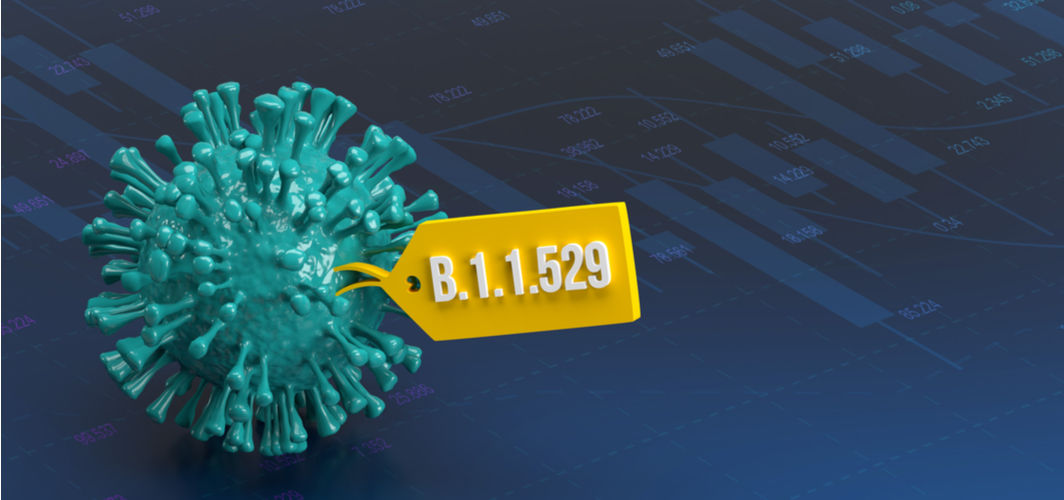Coronavirus Updates
Omicron: A New COVID-19 Variant of Concern
6 min read
By Apollo 24/7, Updated on 7 January 2022, First Published on - 01 December 2021, Updated on - 18 October 2022
Share this article
3
1250 likes

Thanks to mass vaccinations and a significant drop in infection cases across the globe, people had just begun to get back to their normal lives. Unfortunately, the world has been struck by yet another variant of the SARS-CoV-2 virus—Omicron. Cases of this variant were first reported in South Africa but it has also been found in other countries including Spain, Australia, Germany, the Netherlands, and the United Kingdom. While scientists are still examining the virulence (the ability of the virus to cause severe illness) of the new strain, here’s some important primary information about the Omicron variant.
What is the Omicron variant?
On 22nd November 2021, the National Institute for Communicable Diseases in South Africa detected a lineage of the SARS-CoV-2 virus, called B.1.1.529. More than 70% of the samples collected in Gauteng (South Africa) between 14th to 23rd November 2021 belonged to this lineage. Scientists found that this lineage showed numerous mutations, some of which were found in previously detected variants of SARS-CoV-2, while many of them were new. On 26th November 2021, the World Health Organisation’s Technical Advisory Group on Virus Evolution (TAG-VE), announced that B.1.1.529 is a variant of concern and named it Omicron.
Why is it considered a variant of concern?
Spike proteins present on the membrane of the SARS-CoV-2 virus allow it to penetrate human cells and spread infection. It has been found that the B.1.1.529 strain has about 32 mutations, which make the attachment of the coronavirus spike protein to human cells easier. Scientists believe that this can increase the transmissibility (ability to spread from one person to the other) of the new variant.
Though there has been an increase in the number of Omicron infection cases in regions of South Africa, scientists are yet to confirm its virulence and transmissibility.
Who is at an increased risk of contracting the new strain?
WHO stated that people who have previously contracted the COVID-19 infection could be at an increased risk of getting reinfected with the Omicron variant. Scientists also believe that due to the high number of mutations, people with chronic infections or those in an immunocompromised state are more likely to contract the Omicron variant infection.
What are the symptoms of the Omicron variant infection?
According to the WHO, there isn’t any evidence yet to conclude that the symptoms of the Omicron variant infection are different from the ones exhibited by other variant infections. However, the South African Medical Association has reported symptoms that are ‘mildly’ different from those of the dominant Delta variant. Some asymptomatic cases of the B.1.1.529 variant infection have also been reported.
Can RT-PCR tests detect the Omicron strain?
RT-PCR tests can aid timely detection of the variant and control its spread. However, gene sequencing is needed to differentiate between variants.
Are vaccines effective against the Omicron variant?
Studies are underway to determine the effectiveness of COVID vaccines and other countermeasures such as steroids and emergency medications against the Omicron variant. Meanwhile, the WHO recommends that people get vaccinated as it significantly reduces severe complications and deaths associated with SARS-CoV-2 and its other variants.
How many variants of the SARS-CoV-2 virus have been detected so far?
Viruses often transform, this is called a mutation, to survive and adapt to their environment. Several mutations of the SARS-CoV-2 virus have been identified in different parts of the world, some of which include alpha (B.1.1.7), beta (B.1.351), gamma, delta (B.1.617.2), epsilon, zeta, theta, kappa, and the latest—Omicron (B.1.1.529). So far, the delta and delta plus variants (first discovered in India) of the COVID-19 virus have been the most contagious and transmissible.
What are the treatment protocols for Omicron infection?
For those experiencing mild symptoms, home isolation is recommended. Any medication should be administered as advised by a medical practitioner. For those experiencing moderate to severe symptoms, hospitalization might be recommended by the doctor.
Is it necessary to get tested if symptoms are mild?
Since Omicron does not infiltrate the lungs, symptoms tend to be milder. However, getting tested is recommended to control the spread of infection within the community.
Is it possible to get infected after two doses of vaccination?
Recent studies indicate that reinfection is possible in previously vaccinated individuals; however, there is enough data to support the role of vaccines in minimizing the severity of symptoms and risk of hospitalization.
Can a booster dose protect against Omicron?
Antibodies produced by booster doses help fight against the COVID-19 variants, including Omicron. Experts say that the immunity offered by the two initial doses of the vaccine declines over time, necessitating the need for a booster dose. A report published by the UK Health Security Agency states that booster doses may enhance protection against the Omicron variant by up to 88%.
How to protect ourselves from this variant
WHO has urged countries to increase their healthcare and medical capacities to manage a spike in cases. To prevent the spread of the Omicron virus strain, several countries have banned the entry of people arriving from a dozen African countries, including Botswana, South Africa, Zimbabwe, Namibia, Mozambique, Malawi, and others. Some other countries, including India, have set up mandatory, on-arrival RT-PCR tests for people travelling from the mentioned African countries.
Meanwhile, individual measures that must be taken to prevent the spread of COVID-infection include:
- Wearing a disposable 3-ply mask or an N-95 mask, especially while going out in crowded areas
- Getting vaccinated against the COVID-infection
- Avoiding gatherings and crowded places, until necessary
- Maintaining a physical distance of at least 1.5 metres in public places
- Using an alcohol-based (at least 60%) sanitizer or washing hands often with soap and water
- Covering the mouth and nose with a disposable tissue or bent elbow while coughing or sneezing.
- Self-isolating and reporting to a doctor or nearest healthcare facility on developing symptoms of COVID infection such as fever, cough, headache, loss of taste and smell, fatigue, or diarrhoea.
Conclusion
New variants of the coronavirus have been emerging lately. However, since most of these variants are non-threatening and weak, they do not cause severe infection. Similarly, some scientists believe that just like the Delta variant, the Omicron variant may also vanish without causing too much harm but we must keep our guard up to avoid large-scale adversities. While studies are being conducted to understand the variant better, scientists and healthcare workers have urged people to follow COVID-appropriate behaviour to reduce the risk of infection transmission.
Coronavirus Updates
Leave Comment
Recommended for you

Coronavirus Updates
Does Obesity Cause Severe COVID-19 Complications?
Recent research has revealed that obesity-related conditions can cause significant complications in COVID-19 infected people.

Coronavirus Updates
Bone Death: More COVID-19 Complications Emerge
After the emergence of mucormycosis, doctors have now found cases of a new condition called bone death or avascular necrosis, in COVID-19 patients.

Coronavirus Updates
How to Boost Immunity During COVID-19
A healthy immune system can play an important role in reducing the severity and lowering the risk of complications due to COVID-19.
Subscribe
Sign up for our free Health Library Daily Newsletter
Get doctor-approved health tips, news, and more.
Visual Stories

Can India Beat the COVID-19 Surge?
Tap to continue exploring
Recommended for you

Coronavirus Updates
Does Obesity Cause Severe COVID-19 Complications?
Recent research has revealed that obesity-related conditions can cause significant complications in COVID-19 infected people.

Coronavirus Updates
Bone Death: More COVID-19 Complications Emerge
After the emergence of mucormycosis, doctors have now found cases of a new condition called bone death or avascular necrosis, in COVID-19 patients.

Coronavirus Updates
How to Boost Immunity During COVID-19
A healthy immune system can play an important role in reducing the severity and lowering the risk of complications due to COVID-19.